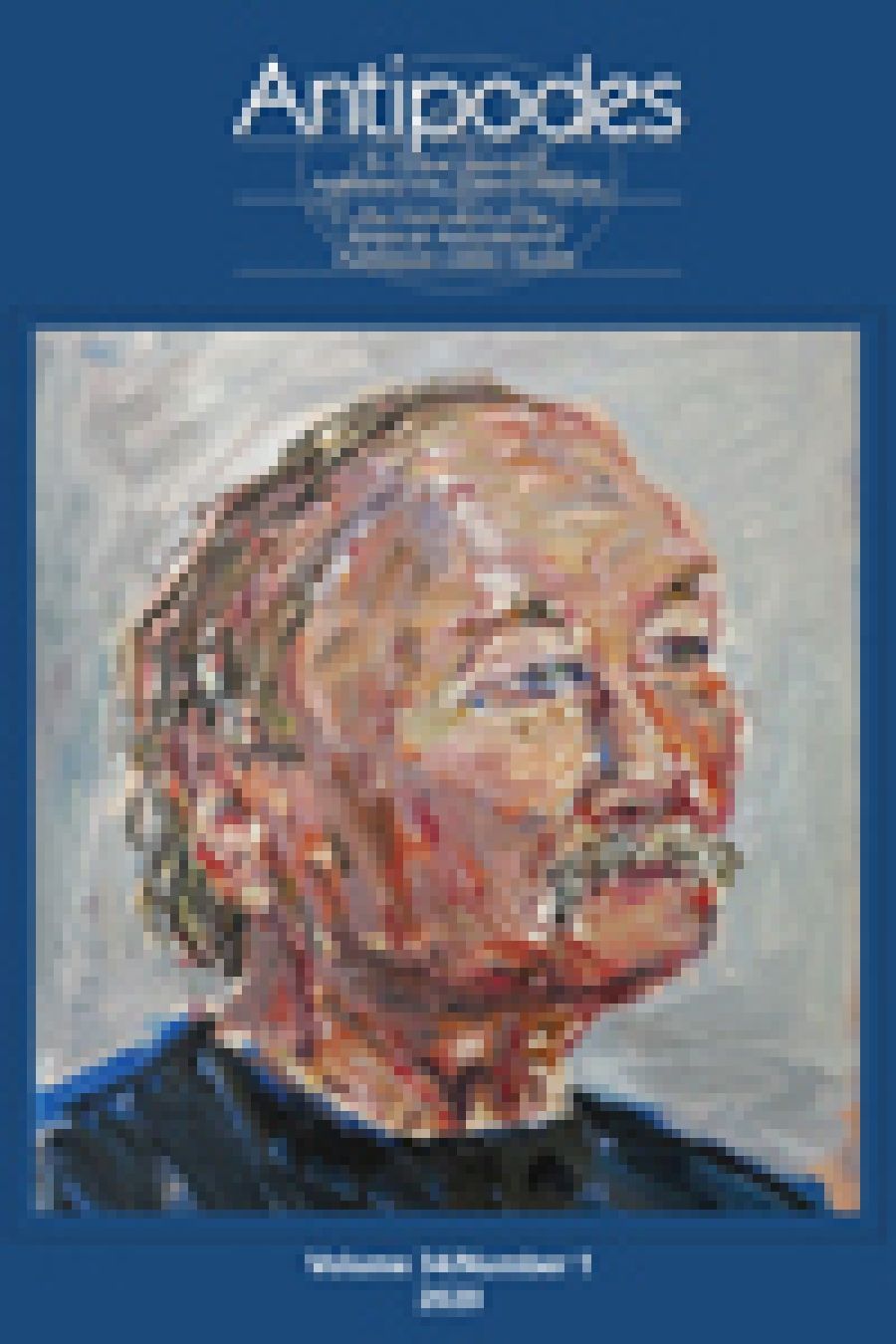
- Free Article: No
- Contents Category: Journals
- Custom Article Title: Anthony Lynch reviews 'Antipodes, Vol. 22, No. 2'
- Review Article: Yes
- Article Title: Anthony Lynch reviews 'Antipodes, Vol. 22, No. 2' edited by Nicholas Birns
- Online Only: No
- Custom Highlight Text:
The latest Antipodes opens with Katherine Bode’s provocative discussion of Roger McDonald’s The Ballad of Desmond Kale. Dissecting McDonald’s ‘fantasy of an all-white, all-male Australian society’, Bode’s essay also criticises Inga Clendinnen for exempting McDonald’s novel from her much-aired arguments against historical fiction. Bernadette Brennan draws on Maurice Blanchot to explore ‘the ungraspable experience of death’ evoked in works by Alex Miller and Noel Rowe, and Lyn McCredden has philosopher René Girard in mind when revisiting the familiar territory of the Lindy Chamberlain case and the ‘rituals of perpetual scapegoating’. Helen Gildfind ‘meets’ Janet Frame through Frame’s autobiographies, and reflects on the ‘reader’s power to decide the autobiographical status of a text’. The result is interestingly self-reflexive, but some readers might prefer more Frame and less Gildfind.
- Book 1 Title: Antipodes, Vol. 22, No. 2
- Book 1 Biblio: American Association of Australian Literary Studies, US$20 pb, 108 pp
Thoughtful and positive fiction reviews (from American critics) of novels by Thomas Keneally, A. Frances Johnson and Matthew Condon devote much space to intricacies of plot, while critiques of Tim Winton’s Breath (Nathanael O’Reilly) and Christos Tsiolkas’s The Slap (Rebecca Starford) make interesting cases for these novels being slightly less than each author’s best. In fiction, Simon Barker’s ‘The Crocodile Hunter’s Wife’ offers a contemporary take on Lawson’s ‘The Drover’s Wife’. Graeme Kinross-Smith’s memoir ‘Three Fires’ is elegiac: ‘The house is set against the bush below the level of the road and it is dying … I can see its bones being eaten as I watch.’ The poetry often draws on rural settings, Jeff Guess’s ‘Abandoned Car’ finding its ‘last garage’ in mallee scrub. B.N. Oakman surveys a more colourful landscape in ‘In Defense of Hawaiian Shirts’, while Cameron Lowe maps a suburban backyard and night sky in ‘The Rule’.


Comments powered by CComment